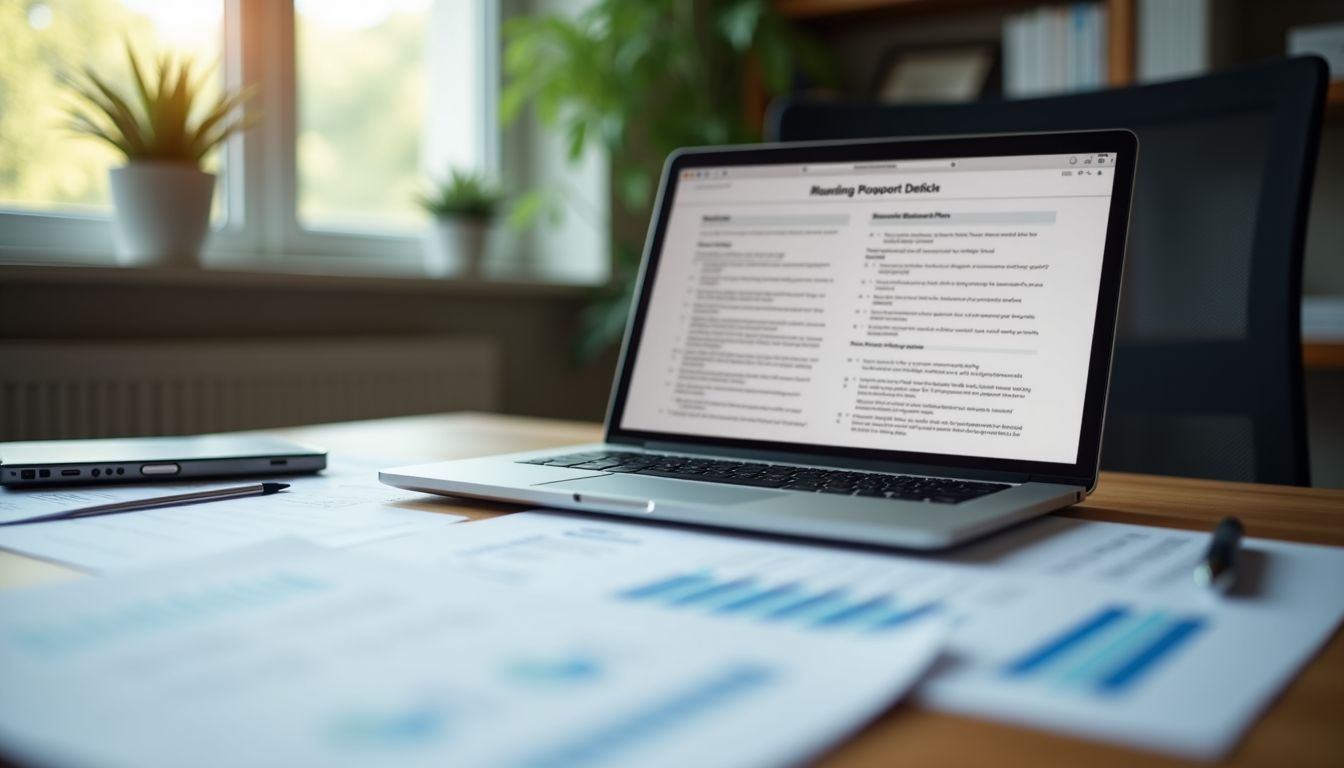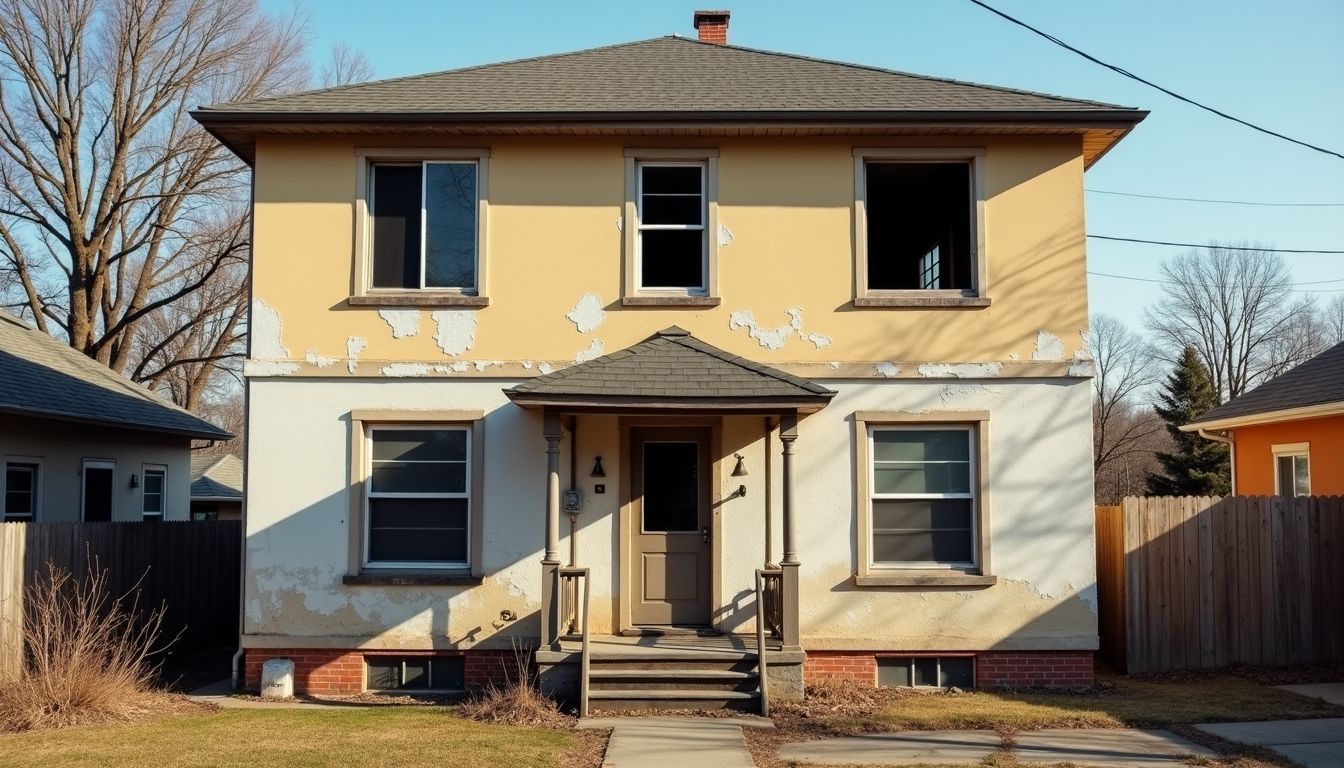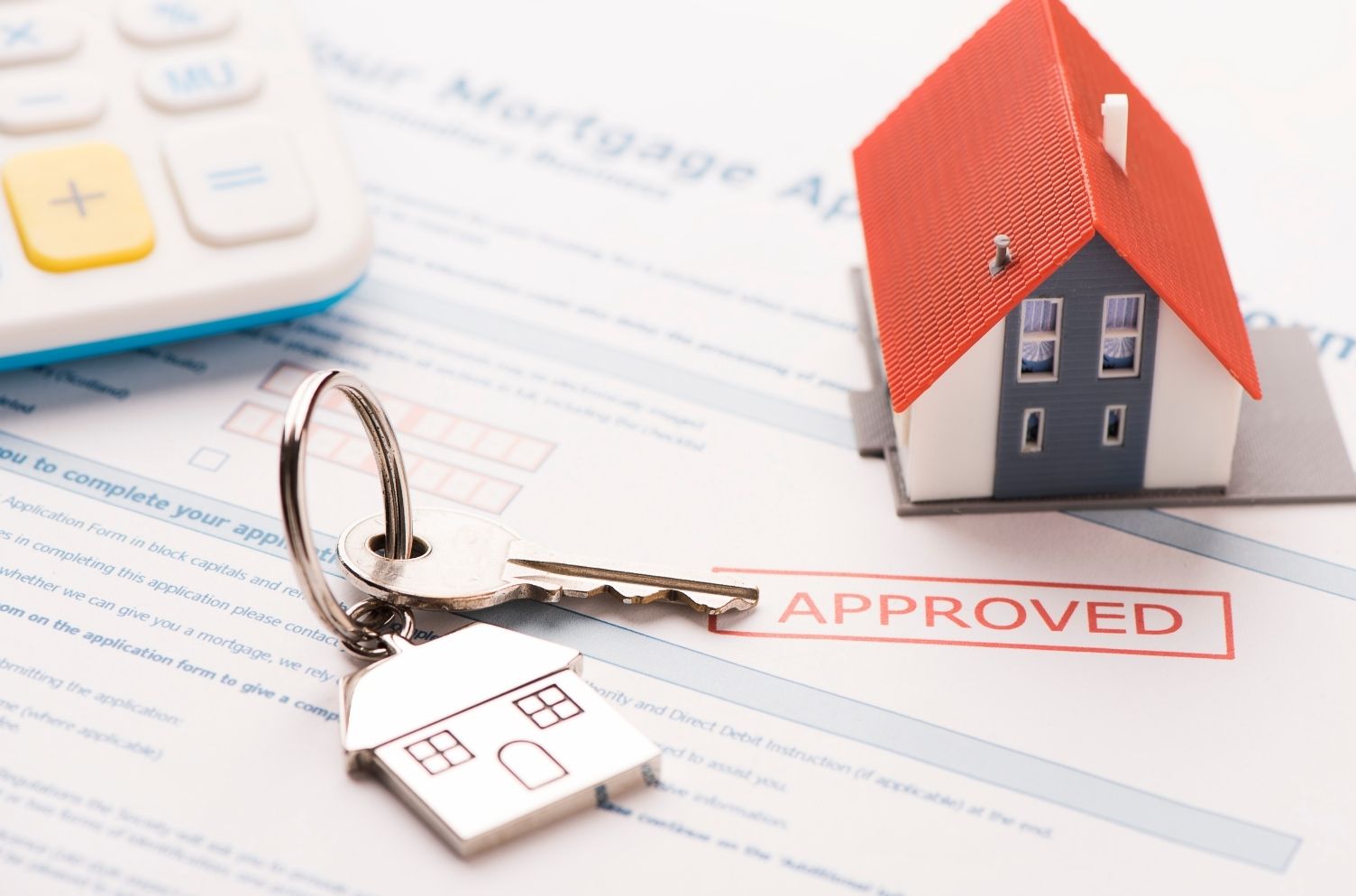How to Get a Commercial Loan for Your Rental Property?
_6280.jpg)
Want to make more money from a rental property? Many people do. You can secure up to an 85% loan-to-value for your investment. This guide will help you obtain a commercial mortgage easily.
Let's start.
Key Takeaways
-
Check your finances before applying for a commercial loan on rental property. You need 25% equity and a good credit score.
-
Create a clear business plan. Include potential rent income, management, and upkeep costs to show profit.
-
Compare loans from over 80 UK lenders offering buy-to-let mortgages. Pick one that fits your investment goals and budget.
-
Budget for extra expenses like deposits (up to 85% LTV), interest rates, broker fees, valuation fees, and product charges.
-
Boost your approval chances by improving your credit score, gathering necessary documents such as tax returns and bank statements, and possibly consulting with a mortgage broker for help.
Understanding Commercial Loans for Rental Properties
Commercial loans for rental buildings are funds you use to purchase or enhance properties that generate rental income.
What is a Commercial Loan?
A commercial loan lets businesses buy property to earn rental income, such as houses or holiday lets. This kind of loan bridges the gap between investment aspirations and generating profits through real estate.
It differs from residential mortgages, which are for personal homes, by focusing on properties that provide rental earnings. With a suitable loan, your property can generate significant money.
How is it Different from Residential Loans?
Commercial loans for rental estates pose a higher threat, so financial institutions require further proof of payback capacity. Unlike home loans that may accept less substantial deposits and factor in your earnings, commercial loans pay more attention to the income promise of the property.
They consider rental income as a vital source of income.
Deposits and interest rates vary as well. Individuals applying for commercial loans often have to put down over 15% due to the commerce-centric loan practice. Moreover, loaners anticipate rental income to surpass monthly instalments by 125%-145%, instituting an additional protective measure for them.
Subsequently, evaluating your fiscal circumstances is crucial for initiating this venture effectively.

Key Steps to Getting a Commercial Loan
Getting a commercial loan might seem like climbing a mountain, but don't worry, you've got this. Start by taking a good look at your money matters and then whip up a business plan that's as solid as rock.
Assess Your Financial Situation
Check your finances carefully before applying for commercial loans for rental properties. Your income should be stable, as lenders will examine this to ensure you can manage repayments easily.
Having a minimum of 25% equity in your home is necessary when applying, as it demonstrates financial responsibility.
Consider rental income and mortgage rates closely. These factors influence the size of the loan you can secure and the terms included. Assessing your financial health is key before pursuing investment dreams in real estate investing.
Develop a Strong Business Plan
Creating a solid business plan is key to getting a commercial loan. It must show plans for making money from your rental property. Highlight the property value and its income potential through rent prices, management, and maintenance costs.
Explain how you'll manage vacancies and financial risks.
This business plan serves as proof to mortgage lenders that investing in you is low risk.
Also, demonstrating additional income sources like salaries or pensions strengthens your case. This shows you're well-prepared and not just relying on rental income. Ensure the plan is financially sound to persuade lenders to approve your loan.
Research Lenders and Loan Options
With a business plan ready, finding a loan is the next step. Over 80 UK lenders offer buy-to-let mortgages through Revolution Brokers. This offers many choices, from repayment to interest-only plans.
Shopping around is key as lenders offer different deals. Some loans suit small rental properties well, others fit large commercial spaces better. Finding the right match depends on your investment goals and budget.

Eligibility Criteria for Commercial Loans
Securing a commercial loan requires your credit score to demonstrate trustworthy financial behaviour. Your income and debts need to be in harmony, making lenders view you as a commendable candidate. Also, your property's value will be rigorously evaluated by lenders to ascertain its worth.
Creditworthiness
Lenders check your creditworthiness to decide if you qualify for a loan. This is key when investing in rental property. Having money isn't enough. Lenders look at how you manage debt, pay bills, and handle finances.
A high credit score improves your chances of getting a buy-to-let mortgage.
Your credit history is important too. Late payments or failed loans can raise red flags for lenders doing their checks. Keeping a clean financial record supports quicker positive lending decisions.
Income and Debt Ratios
Banks check your income and debts when you apply for a rental property loan. They consider earnings from jobs, pensions, or other properties. Your ability to cover loan payments is crucial.
The debt-to-income ratio is important; too much debt may lead to a rejection.
There's no minimum income requirement for loans. This benefits those with diverse income sources. But, it's essential to have low debts relative to your income. Banks assess this to determine the risk of lending money for buying or letting properties.
Property Appraisal Requirements
To secure a commercial loan for your rental property, it must undergo an appraisal. An expert evaluates if the property value matches the loan request. They consider factors like the Energy Performance Certificate (EPC) score, which indicates energy efficiency and can affect property values.
Lenders assess rental income and compare it with sales prices of similar properties to ensure lending is a wise decision.
Commercial loans come in various types for rental properties. These loans are based on appraisals, EPC scores, rental incomes, and market comparisons.

Types of Commercial Loans for Rental Properties
Exploring commercial loans for rental properties reveals a variety of options, from traditional bank loans to bridge and hard money loans. Each type suits different investment property needs.
Traditional Bank Loans
Traditional bank loans are a popular choice for buying property. You need at least a 15% deposit for these mortgages. They often come with different deal periods, including 2, 3, 5, or even 10 years.
This variety allows investors to plan their finances effectively.
Banks offer various rates for mortgages. The size of your deposit and the length of your deal period significantly affect what you end up paying back. Therefore, researching to strike the best balance between your initial deposit and long-term payments is crucial.
Commercial Investment Mortgages
Commercial Investment Mortgages finance the purchase of rental properties. These loans differ from standard home loans because lenders assess potential rental income. The expected rent must be between 125% and 145% higher than the mortgage payments, ensuring costs are covered with extra profit.
Special Purpose Vehicle (SPV) and trading limited companies focusing on rental properties often find it easier to secure these mortgages. This option suits investors looking at either apartment blocks or single-family homes, facilitating the transition into becoming a landlord.
Bridge Loans
Bridge loans provide short-term funding for buying property before selling an existing one. They offer quick cash, useful for refurbishing and flipping properties or as a temporary solution before getting long-term financing.
These loans are short, often under two years, with interest rates higher than traditional mortgages. For real estate investors focusing on rental income, the fast access to funds justifies the extra cost.
Hard Money Loans
Hard money loans come from private companies or people, not banks. They focus on the property value you're buying rather than your credit score. These loans suit when buying rental properties quickly because they offer fast access to funds.
However, they have higher interest rates and shorter repayment periods compared to traditional bank loans.
They are ideal for fix and flip projects due to their quick approval time. This allows investors to start renovations sooner. Despite the convenience, borrowers face higher costs with these loans through steep interest rates.
Repayment is expected within a few years—much quicker than standard mortgage agreements which extend over decades.
Costs Involved in Commercial Loans
Commercial loans come with upfront payments and ongoing charges, similar to unexpected costs in a meal deal. These fees are essential for maintaining the loan.
Deposits and Down Payments
Planning to invest in a buy to let mortgage? You'll need a significant deposit. Lenders often require up to 85% loan-to-value (LTV), leaving you to cover at least 15%. This large initial payment is crucial, showing lenders your commitment.
Securing 100% financing is rare and usually requires additional security, such as equity from another property. This option isn't common but could be beneficial for some investors.
A substantial down payment convinces banks of your investment's seriousness, making them more likely to consider your application.
Interest Rates and Repayment Terms
Lenders determine the cost of borrowing for rental properties based on interest rates. You have two payment choices: either pay the full loan amount monthly or start with interest-only payments and settle the principal later.
Each option influences your monthly expenses differently.
Repaying the full amount each month makes your costs consistent but possibly higher initially. Choosing interest-only payments lowers immediate expenses, but you'll face a large sum due in the end.
This decision shapes how much you spend over time on your investment property mortgage.
Additional Fees and Closing Costs
Securing a commercial loan often involves facing supplementary costs beyond the initial deposit. These concealed fees incorporate a broker charge by Revolution Brokers, divided into two segments.
Moreover, valuation charges and product fees could be appended to your mortgage. When orchestrating your financial estimates for investments or rental income, consider these additional outlays.
They can carry a substantial effect on your finances if dismissed. Stay vigilant for these charges and closing costs to evade unexpected elements in your fiscal planning.
Tips for Securing a Loan
Getting a commercial loan for rental property requires a strong financial profile.
- Improve your credit rating to increase your chances of approval.
- Collect important documents such as tax returns and bank statements to prove you can repay the loan.
- Consider working with a mortgage broker for professional guidance and an advantage in negotiations.
Improve Your Credit Score
To boost your credit score, pay bills on time. Missing payments lowers your score. Keep credit utilisation under 30%. Check your credit report for errors and fix them quickly. Errors can lower your score significantly.
Fixing these is crucial for securing a commercial loan for rental property.
Prepare all necessary documents next.
Prepare All Necessary Documents
Before applying for a commercial loan, gather all necessary financial documents. This includes bank statements, proof of rental income, and credit reports. An account manager will need these after your advisor submits your application.
Have details ready about any debts and assets like houses or other properties you own. These prove to lenders you can manage the loan. They perform flexible affordability checks, so clear records help streamline this process.
Work with a Mortgage Broker
A mortgage broker connects you with suitable lenders for commercial loans. They understand the specifics of these loans, saving you time and effort in finding the right match. Their expertise increases your chances of approval by lenders and might secure better deals.
Revolution Brokers specialises in arranging commercial loans for rental properties. Contact us at 0330 304 3040 or visit our website for guidance on every stage of securing a loan, ensuring clarity throughout the process.
Frequently Asked Questions
Need to understand loan approvals or how to secure financing for your rental property? We've got the essential information you need, simply explained.
Can I Get 100% Financing for a Rental Property?
Getting full finance for a rental house can be tough, yet it's possible with the right setup. If you own another property with equity, you can use it as security. This means if payment problems arise, lenders may claim this extra property.
By placing a legal charge on the additional property, you provide a safety net for the lender. Thus, obtaining complete financing involves leveraging your future rental income and another property's value to secure the deal.
What Factors Affect Loan Approval?
Your credit score matters a lot for a commercial loan. A high score means better loan terms. Lenders also look at your income and debt to see if you can afford the loan. This is like making sure you don't spend more than you earn.
For the property, banks need to see its value before lending money. They check if the sale price matches your loan request. Stable income is crucial for them as well; they prefer borrowers with consistent earnings.
Also, there are upper age limits, affecting their decision on whether you can pay back the loan over time.
How Long Does the Loan Approval Process Take?
Understanding loan timelines is crucial. The response time from lenders varies. Some can give a decision in two hours over phone or email, providing a quick idea.
However, the complete process requires more time due to checks and paperwork. On average, it takes several weeks to months from application to receiving money. This duration depends on one's financial situation and how fast they submit required information.
Conclusion
Securing a loan for your rental property can seem challenging, but with preparation, it's manageable. Start by closely reviewing your finances and creating a clear plan. Choosing the right lender is crucial for a smooth process.
Demonstrating strong financial management and presenting your property in the best light are important steps. Accurate budgeting and enhancing your property's appeal are essential to securing that loan.
FAQs
1. How does rental income affect my chances of securing a commercial loan?
Rental income can significantly impact your ability to secure a commercial loan for your property. Lenders usually look at the return on investment (ROI) and gross rent multiplier, which are directly influenced by the rental income.
2. What is the role of capitalisation rate in getting a commercial loan?
The capitalisation rate, or cap rate, is used to estimate the value of an income-generating property like rentals. A higher cap rate often means better ROI, making it easier for you to get approved for a commercial real estate loan.
3. Can I apply for a commercial loan if I'm bankrupt or under individual voluntary arrangement?
While being bankrupt or under an individual voluntary arrangement might make it more challenging to secure a commercial loan, it's not impossible. It's crucial to seek financial advice from experts regulated by the Financial Conduct Authority before proceeding.
4. How do different valuation methods like sales comparison approach and discounted cash flow influence my chances of getting a commercial loan?
These valuation methods help determine your property’s market value that lenders consider when assessing your application for loans against properties such as houses of multiple occupancy or buy-to-lets.
5. Do employment and salary play any role in obtaining this type of financing?
Yes! Stable employment and regular salary could be seen as assurance that you'll meet terms and conditions set out by lenders - especially important if renting markets face deflationary periods affecting rental incomes.
6. Are there any risks involved in taking out this kind of mortgage?
Like all investments, there are some potential pitfalls with borrowing money against properties – taxes, insurance costs along with fluctuating land values may affect returns on investment over time.
Related Posts
Ask the Expert
Mortgage Brokers





_7779.jpg)